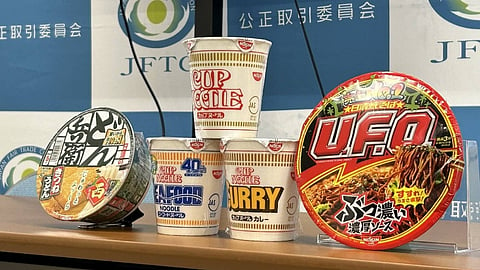
- NEWS
- the EDIT
- COMMENTARY
- BUSINESS
- LIFE
- SHOW
- ACTION
- GLOBAL GOALS
- SNAPS
- DYARYO TIRADA
- MORE

Nissin Food Products, the company that pioneered instant noodles, has been hit with an antitrust warning from Japan’s Fair Trade Commission (FTC) for allegedly pressuring retailers to raise prices on five of its noodle products, including its flagship Cup Noodles. The FTC stated that Nissin had violated antimonopoly laws by urging retailers to match price hikes by competitors, monitoring compliance through price tags and receipts, and setting minimum sale prices. The company responded, acknowledging the warning and committing to improving its legal compliance.
This warning comes as Nissin has consistently raised prices in recent years, citing increased costs of materials and fuel. The FTC’s findings suggest that Nissin’s practices left consumers with fewer options for lower-priced noodles, compelling them to purchase at inflated prices. The regulator noted that such actions undermine consumer choice and competition in the market.
Instant noodles, a staple introduced by Nissin’s founder Momofuku Ando in 1958, have long been considered an economic indicator. In 2022, global consumption reached a record 121 billion servings, driven in part by inflation and the lingering impacts of the COVID-19 pandemic. Analysts point out that the demand for these affordable, durable meals often spikes during economic downturns, highlighting societal strain.
Adding to the lore of instant noodles is the astonishing claim that if all the noodles sold globally in a year were laid end to end, they would form a 6.2 billion-kilometer “giga-noodle,” stretching beyond Pluto. While the thought of a noodle line reaching into deep space is fascinating, it also underscores the massive scale of global noodle consumption and its significance in the food industry.
Nissin’s antitrust warning shines a spotlight on the delicate balance between corporate practices and consumer rights in a market where a humble, inexpensive meal has become both an economic barometer and a cultural icon. As Nissin navigates these regulatory challenges, the world’s appetite for instant noodles shows no sign of waning.
(Sources: Channel News Asia, The Guardian)
